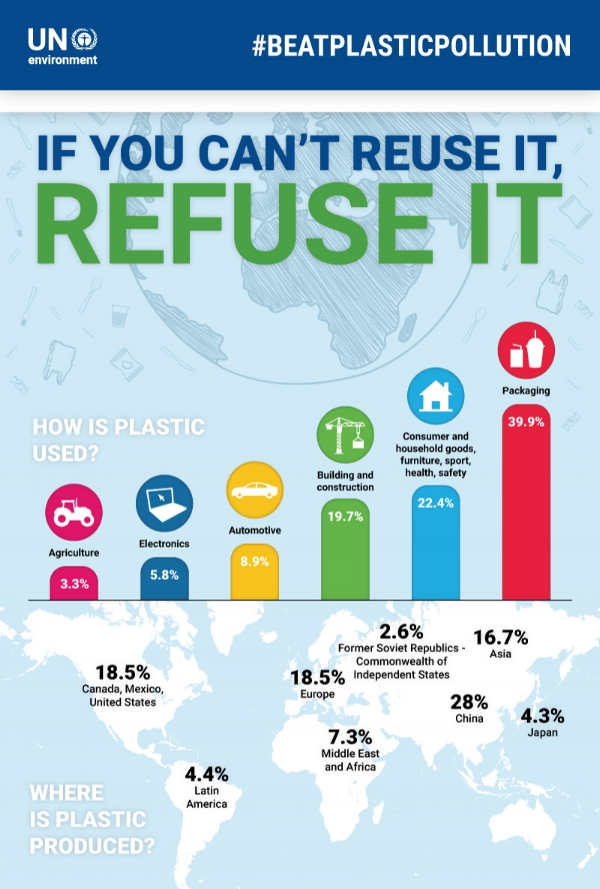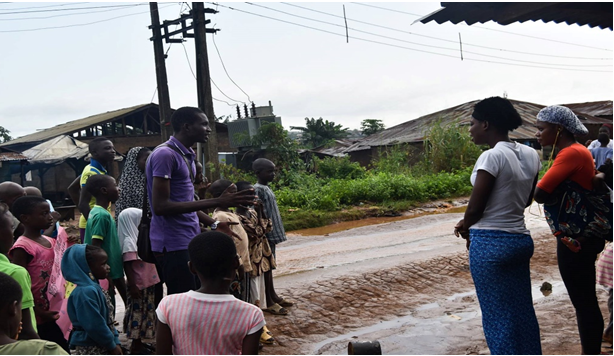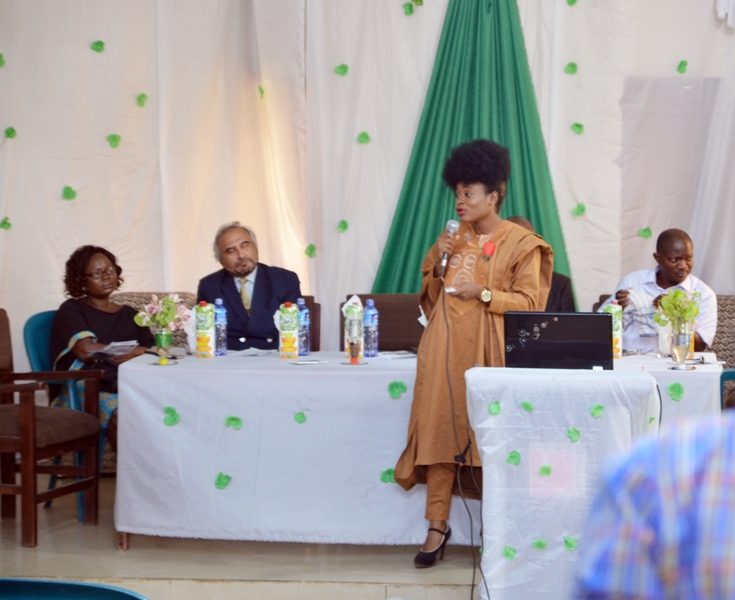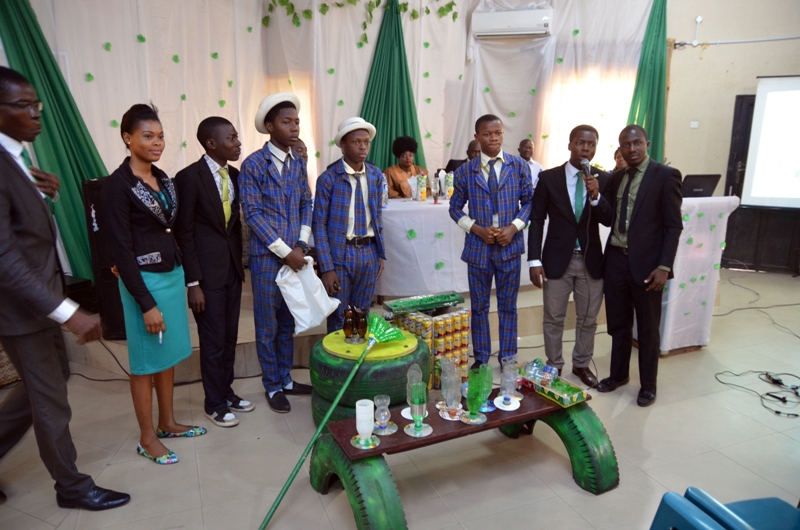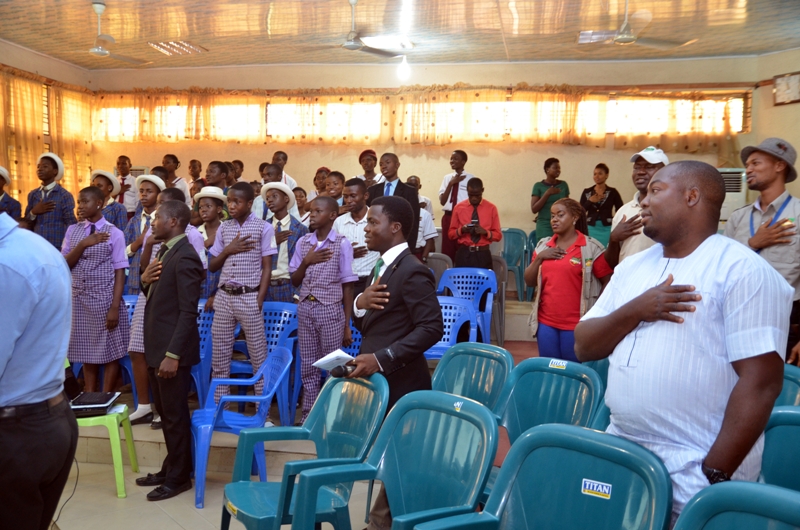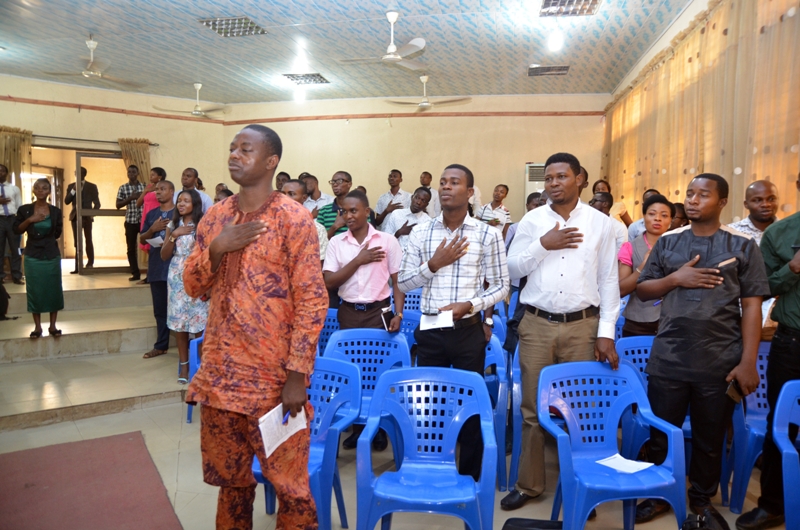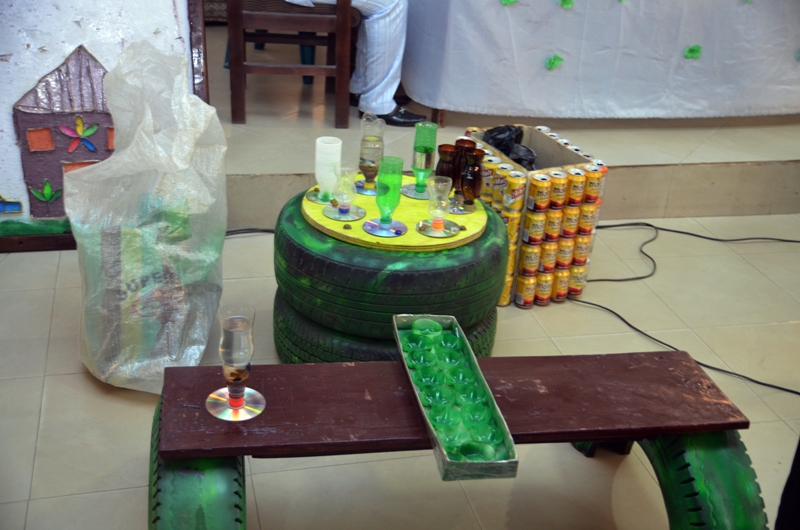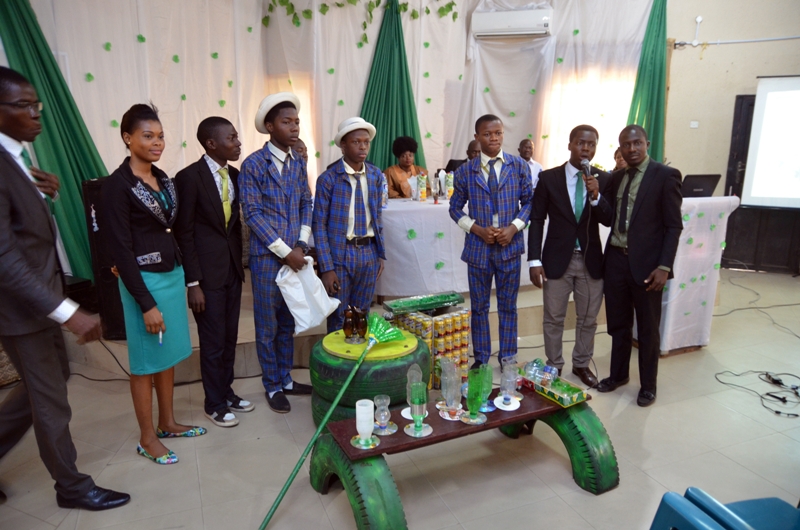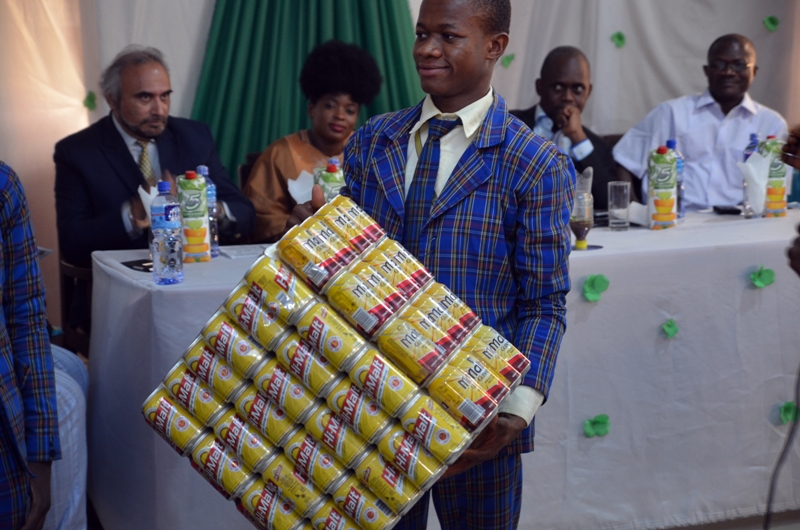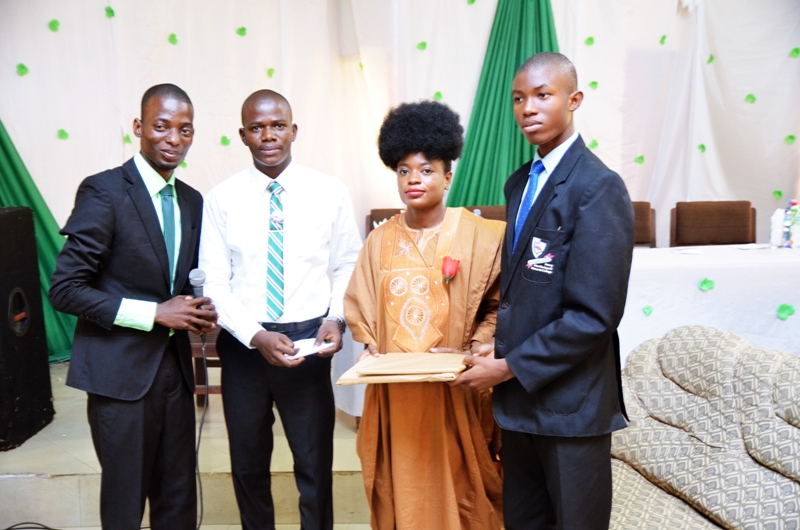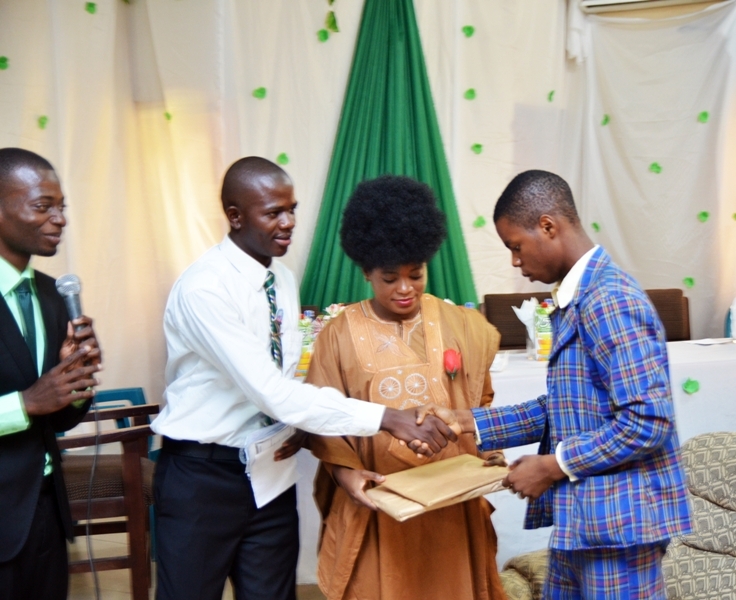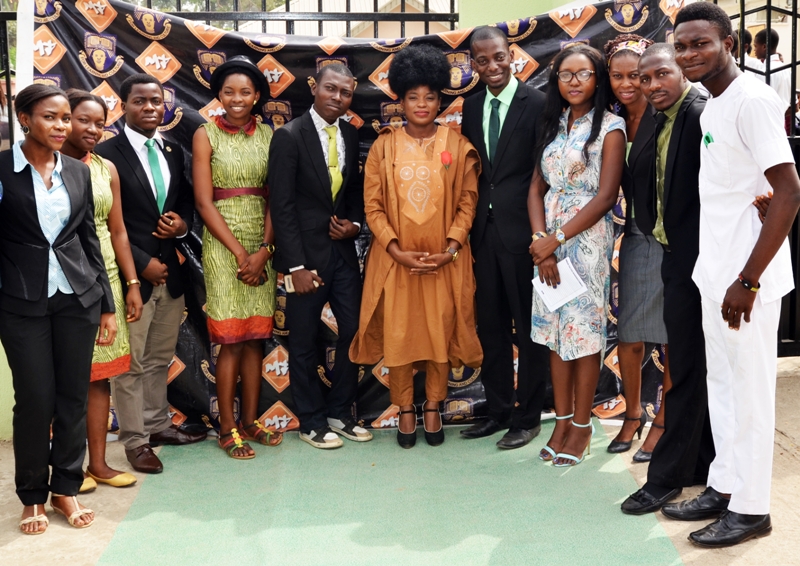I have fought all temptation to write an article about Donald Trump or our remote president, Buhari. Well, until now!
Mr Trump announced a few days to World Environment Day (WED) that the US is exiting the Paris Agreement. For someone who wants to make the US great again, I am not sure he is putting the people first. What Nation can be great without its people? Ironically, this year’s WED’s theme is connecting people to Nature.
Climate change is a moral issue. It is not just science. The World Bank estimated that climate change could drive more than 100 million people into extreme poverty by 2030. The United States is currently the world’s second-largest carbon polluter, and it is estimated that its withdrawal from the Paris Agreement Accord would add up to 3 billion tones of extra carbon dioxide to the atmosphere. By the end of the century, this would have raised global temperature by 0.1 – 0.3oC. How about making our planet great again?
Now, let’s address this even more locally. President Buhari did sign the Paris Agreement in March of this year, committing to reducing greenhouse gas emissions unconditionally by 20 per cent and conditionally by 45 per cent.
Of course, this sounds good on paper or when you hear it in the news. The practicality of it, however, is what we need to examine.
I was at the United Nations General Assembly meeting in September 2016, and I attended a side event on Lake Chad. Truth be told, there was a lack of interest from both the president and the Nigerian delegates (or is it entourage) present. This lack of will or comprehension makes it all the more difficult to have a sustained and viable national policy on the environment. The president soon left the meeting and pitifully, all other delegates followed him and exited the hall, while the meeting was still in full swing. No meaningful contributions came from Nigeria. It was embarrassing. For these delegates, it was merely a photo-op to show that they were with Mr President. What I saw was a group of entitled, lazy sycophants whose last thoughts were the Nigerian people. But, it is expected from our government- they show face but their consciousness was absent.
Most people will tell you they need lots of funding before they can take action on climate change. These so-called Environment organisations that have even received funding, what have they done with it? They push for policies with no strategy and when they get grants from international bodies, they are never adequately utilised. It is the new “green” business.
We should care the most about the environment. That’s what the green on our flag symbolizes. But, Nigeria is an archetypical oil nation. According to Energy Information Agency, we are the 10th largest producer of oil in the world, but we lack strong regulatory infrastructure on environmental protection. Currently, Nigeria ranks 6th on the list of vulnerable countries in the world. What is more; by 2030, the country would ranks among the countries which will experience environmental disaster induced poverty
We are the 6th most vulnerable country in the world. Worst, by the year 2030, Nigeria would be one country out of 10 in the world that will have disaster induced poverty.
I have done extensive research in the oil producing regions of Ondo State. In the past 30 years, over 400, 000 tonnes of oil has spilt into creeks, sediments and soil. The core occupation of residents in this area is subsistence fishing and farming. And these oil spills occurs every year, causing major harm to the environment, obliterating livelihoods and placing human health at serious risk.
The human rights consequences are thus, severe. In such vein, Heinrich Boll Stiftung (a Germany based organization) conducted a research in 2015 and highlighted the challenges in Nigeria’s in the following order; Climate change and its impacts, extremism and the pursuance of ethnic interests, rising inequality and persistent poverty in the midst of increasing wealth, social unrest and insecurity, food insecurity, corruption and governance through political clienteles, weak regional integration, lack of energy access and a shift in global energy needs, poor education, population trends, such as the growing body of young Nigerians.
Of all the challenges listed above, I think the lack of energy is the most overriding because it is interrelated to the other challenges. Energy is an essential need. Yet in Nigeria, we do not have stable electricity. Businesses are failing; people are getting sick from kerosene fumes and generator exhausts, education is getting weaker due to lack of access to information technology and reliable light source to research and innovate.
Even relationships are affected because everything is just ridiculously harsh.
Our world is going mad. President Trump may think climate change is a hoax, while Buhari may sign a document he doesn’t fully comprehend. However, that should not stop us from doing our part. This planet is ours. When it thrives, we do the same.
How can we stay sane in a world that feels fully intent on caving in on itself?
For me, it involves connecting more with nature. Going outside and stepping into nature. Experiencing its beauty and its importance. It is only when we appreciate alluring essence of Mother Nature, then, together, we would have the urge to make our planet great again.
This, however, is not a difficult endeavor. You can simply connect with nature by:
- Taking off your shoes and kissing the earth with your feet
- Planting vegetables somewhere in your yard
- Jumping into that beautiful lake
- Looking up to the sky, appreciating the shape of the clouds and the sounds of the birds
- Taking a hike
- Picking up those plastic bottles on the road while walking or jogging
- Supporting the Trash for Education Scheme by donating valuable wastes such as old clothes, plastic bottles, used tires, etc. to provide education to people who cannot afford them.
It is already hard being a Nigerian. Do not let the hardships take away your basic rights.
Nature is closer than you think.
Credit: Adenike Akinsemolu for BellaNaija













